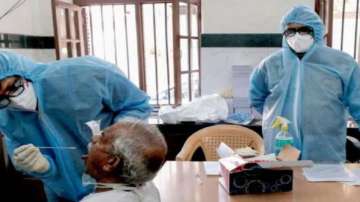The novel coronavirus responsible for Covid-19 could become little more than a nuisance, causing no more than common cold-like coughs and sniffles within the next decade, say researchers.
The team, including Fred Adler from the University of Utah, said this possible future is predicted by mathematical models that incorporate lessons learned from the current pandemic on how our body's immunity changes over time.
"Over the next decade, the severity of Covid-19 may decrease as populations collectively develop immunity," Adler said.
The findings, published in the journal Viruses, suggest that changes in the disease could be driven by adaptations of our immune response rather than by changes in the virus itself.
Although SARS-CoV-2 (the sometimes-deadly coronavirus causing Covid-19) is the best-known member of that virus family, other seasonal coronaviruses circulate in the human population- and they are much more benign.
Some evidence indicates that one of these cold-causing relatives might have once been severe, giving rise to the "Russian flu" pandemic in the late 19th century.
To test the idea, they built mathematical models incorporating evidence on the body's immune response to SARS-CoV-2 based on few data from the current pandemic.
Running several versions of scenarios showed that the three mechanisms in combination set up a situation where an increasing proportion of the population will become predisposed for the mild disease over the long term.
The team felt the transformation was significant enough that it needed a new term. In this scenario, SARS-CoV-2 would become "Just Another Seasonal Coronavirus," or JASC for short.
"Our next step is comparing our model predictions with the most current disease data to assess which way the pandemic is going as it is happening," Adler noted.
Latest World News
